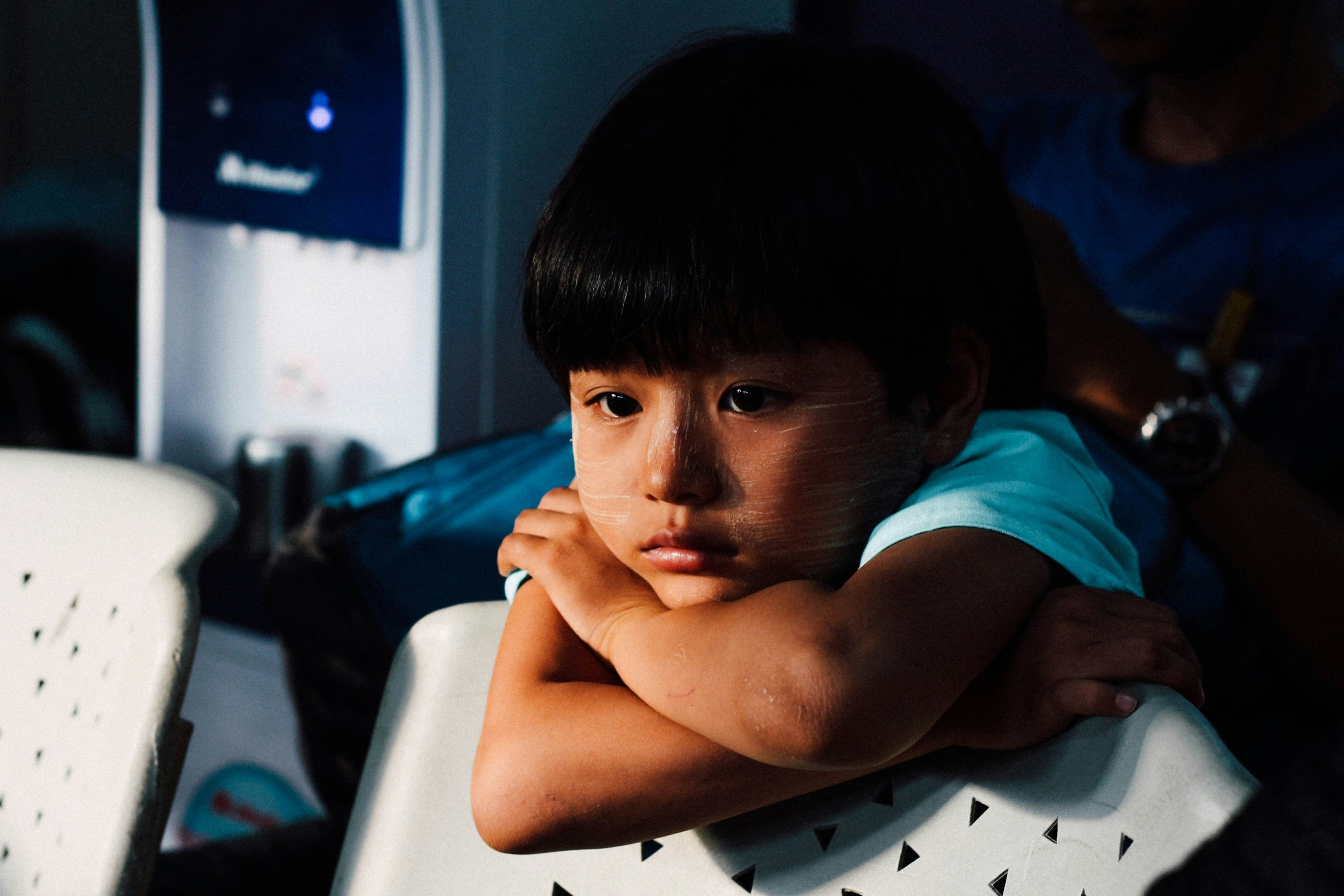“Likable” only gets you so far in pop. “Relatable”? Klutzy word, yeah, but fans overuse it for a good reason: It’s a quality mere mortals crave from otherwise unapproachable stars, and it includes those brattier, cattier, and otherwise nastier sides of our personalities that we’d also like to see reflected in our idols. But to use a word even more potentially damning than “likable”—which, sorry, Maggie Rogers, you certainly are, may as well own it—and without indulging in euphemisms like “charming” or “engaging,” let me add that the 28-year-old star seems nice. And that she makes it work.
Anyway, how relatable can you find an overachiever who spent the pandemic finishing her master’s thesis (on “the spirituality of public gatherings and the ethics of power in pop culture”—I’d skim a pdf of that) at Harvard Divinity School and wrapping up her second major label album all while you were dicking around on Animal Crossing and pretending to enjoy sourdough? Well, plenty, for a sizable but not vast fandom who hear in her anecdotal, plainspoken lyrics analogues of their own of loves and friendships. For the rest of us—well, on the two albums she’s recorded since Pharrell Williams personally plucked her out of NYU, Rogers embodies a kind of special so unassuming it can seem ordinary to anyone not already in thrall.
But for nearly two hours at the Armory Saturday night, even casual appreciators (at least this casual appreciator) could, well, relate to Rogers’s fans’ passion. Where many pop stars come on as either sexed up or anodyne, Rogers refusal to settle for the extremes of hot-cha-cha or hooray-for-everything registers as emotional maturity for a room that looked median college age. And her assured, comfortable stage presence contributes to that vibe; not many singers use their big voices to project sanity and composure, to assure their listeners that you can let the biggest feelings flow through you without letting them overwhelm you.
And the girl sure can belt. In the studio, Rogers may murmur and under-enunciate to the disservice of her lyrics, but live her melisma works through many modes, including a dynamic but unshowy pop-soul. Still, it’s her striated Lilith swoop that adds the most character—not too surprising that when she prepped a book for the 33 1/3 music writing series (before stardom rescued her from a life of print publishing), it was on Alanis. When Rogers led off a setlist that included all 12 songs from her new album, Surrender, with its opening track, “Overdrive,” that plaint of mixed-up love allowed her to roar deliriously like Dolores O'Riordan.
In shiny silver pants and a black feathery piece that she abandoned quickly (stage lights are hot) for a bare-shouldered top, her once long red hair trimmed to a flattering blonde bob, Rogers looked every bit the star—though in truth her fit was not all that more elaborate than how her fans had dressed for their night out downtown. After “Overdrive,” the bubbly “Want Want,” with its winningly silly “If you want-want what you want-want, then you want it,” cut with refreshing directness through her aura of earnestness, and “Say It,” like most of the songs she played from her debut, Heard It in a Past Life, had more oomph live, relying less on electronic textures and more on full band dynamics.
I dismissed Rogers’s 2019 debut as generic without stopping to wonder what genre I supposed she was stuck in. (Florence+the-Machine-core?) Rogers’s antecedents would have been deemed uncool back when it was still cool to draw those distinctions, but they’re hard to pin down because they were once as omnipresent: At times you could be listening to a midtempo Heart ballad from 1986. She’s never funky but always danceable. Despite her look and pedigree she doesn’t skew indie. Vestiges remain of her folkie days, but they’re usually camouflaged with synthy sound effects or, especially on Surrender, big electric guitars, sharpened by producer Kid Harpoon, who worked with, yes, Florence + the Machine and other emotive female singers before getting a career boost as a Harry Styles collaborator.
Rogers sings about love and devotion (or admits confusion and heartbreak) to a “you” who may be imaginary or a composite, and could be a friend or a lover. Her lyrics, dependent on tune and context, don’t always dazzle on the page. Her epiphanies are often as plainspoken as “And I walked off you/And I walked off an old me," from “Alaska,” the song that hooked Pharrell; her confessions are as conversational as “If you're wonderin' what you should do with your life/Honey, if I knew, I would tell you, wouldn't I?” from “Honey.” And she strives for that emotional balance I mentioned earlier: “I know there's times when I can be a lot to handle,” she sang on “Symphony.” “And I'm working with a therapist to take care of it.”
The Armory held many m-f couples that night, and a few small groups of men. (Discovery: There are still white dudes with dreads, or at least there’s still one, and they still dance badly, or at least he does, and take up a lot of space doing it.) But these were outnumbered by young women, in groups or in pairs with, I gauged, more girls-who-were-friends than girlfriends—a guess borne out by the roar that answered Rogers’s question “Did anyone come here tonight with a best friend?” That was how she introduced “I’ve Got a Friend,” a sweet little acoustic thing sprinkled with cute details (“Oh, I've got a friend who's been there through it all/Masturbates to Rob Pattinson, staring at the wall”) and ends its chorus with a simple “and she’s got a friend too” I’m a sucker for.
Rogers had to restart that song twice. Her other acoustic number, “Love You for a Long Time,” took three attempts. But the effect of these moments was less amateurish than modest, and her winning stage presence made the flubs feel like intimate high points. As my friend Bryan said, it wouldn’t be surprising if she goofed on purpose just to come off as more—that world again—relatable.
“Love You for a Long Time” was preceded by Rogers’s attempt at playing matchmaker. “It would be easy to dedicate this next song to anyone who’s in love out there,” she said, choosing instead to play it honor of anyone who was looking for love. Her instruction to “raise your hand if you’re single” was not met with as many raised hands as it might have been. Makes sense: What dude would want to seem that desperate, and what woman would want to make herself a target for desperate dudes? I bet White Dread Guy was eagerly scanning the crowd.
Rogers also dipped into her old folkie mode when she brought out opener Del Water Gap (aka Samuel Holden Jaffe) for “New Song,” a number she wrote with him back when the two were still collaborating. But most of the evening was more upbeat, like the propulsive dance-pop of “Retrograde,” which swerved, to the crowd’s delight, into that new standard, “I Wanna Dance With Somebody,” a trick I last saw pulled at the Armory by Haley Williams with Paramore. In this context I even mildly dug “Light On,” whose chief effect I dismissed as “movie-trailer uplift" in 2017.
After closing her set with the declaration of love born out of friendship “That’s Where I Am,” with its distinctly Christian pop vibe, Rogers started her two-song encore with the regretful “Fallingwater.” She introduced her final song “Different Kind of World” by discussing the pandemic, giving her longest speech of the night, “It’s been so long since we’ve been able to do this, to be together,” she said, then paused. “There’s a dude yelling at me,” she told us, before addressing him directly. “This is your time to listen. The world would be a much better place if dudes would learn to listen.” So say that Maggie Rogers knows when not to be nice. And the women in the crowd sure could relate.
Setlist
Overdrive
Want Want
Say It
Honey
Love You for a Long Time
Shatter
Begging for Rain
Be Cool
Symphony
I’ve Got a Friend
New Song (with Del Water Gap_
Alaska
Retrograde/I Wanna Dance With Somebody (Who Loves Me) (Whitney Houston cover)
Horses
Anywhere With You
Light On
That's Where I Am
Encore
Fallingwater
Different Kind of World







